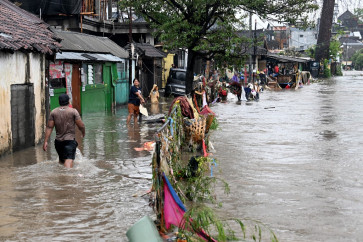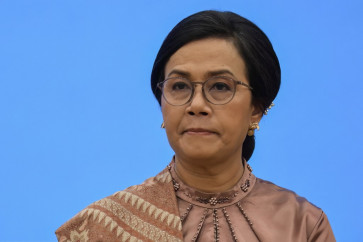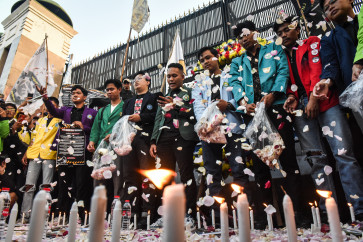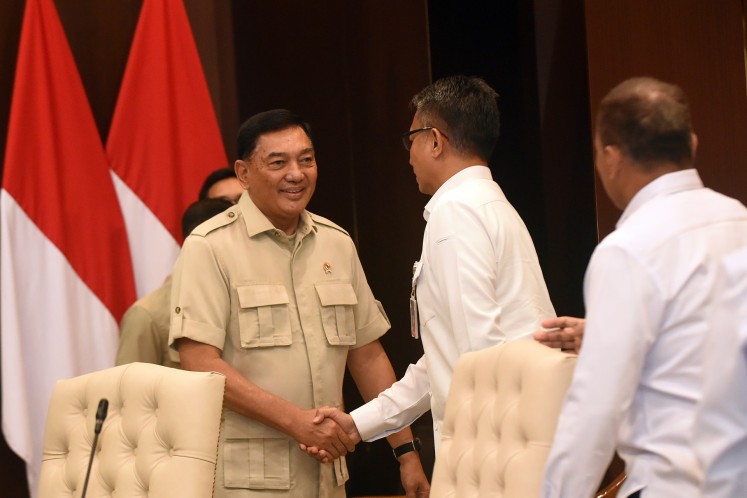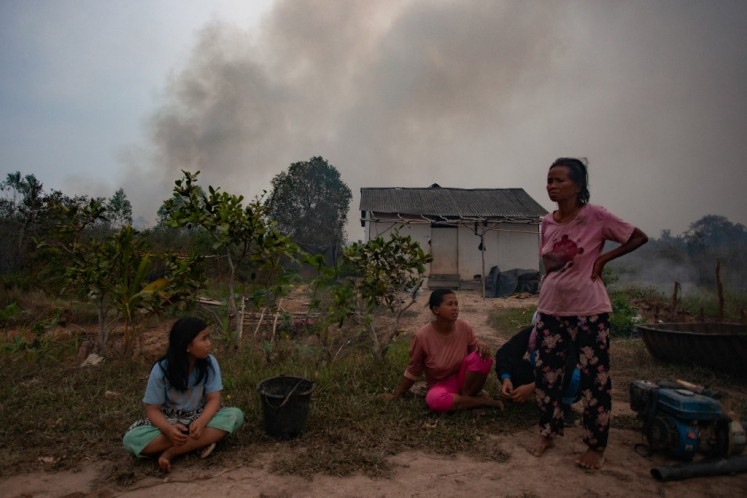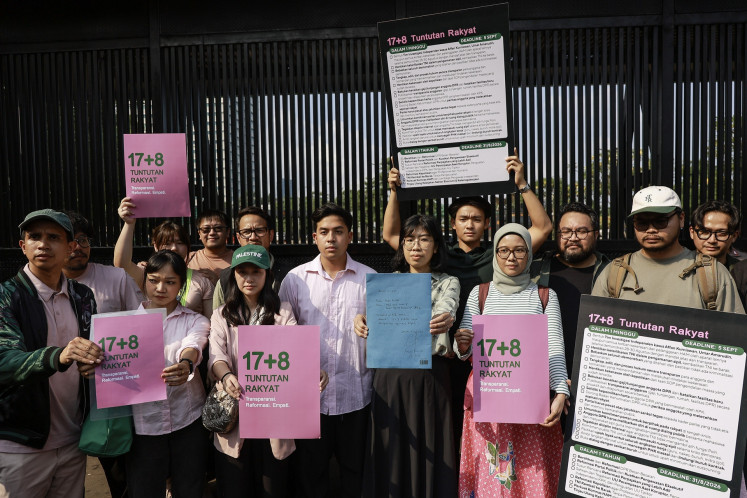Popular Reads
Top Results
Can't find what you're looking for?
View all search resultsPopular Reads
Top Results
Can't find what you're looking for?
View all search resultsIndonesia and the data revolution for development
Information helps policymakers better understand the challenges their societies face and measure progress toward solving them
Change text size
Gift Premium Articles
to Anyone
I
nformation helps policymakers better understand the challenges their societies face and measure progress toward solving them.
Thanks to recent progress in data gathering and analysis, both the quantity and quality of that information has skyrocketed in recent years. The government of Indonesia has emerged as a leader in utilizing these new tools and in making the information public and transparent.
Two major trends are shaping the 'Data Revolution for Development' that Indonesia is engaged in. First, that member countries and the United Nations system are getting much more serious about the measurement of their achievement of national and global goals such as lowering infant mortality, reducing poverty, and improving learning in schools. Citizens also increasingly demand accountability. This is the demand for data.
The second is the astonishing drop in the cost of computing power: Any cell phone today has more computing power than what was used in Apollo 11's mission to the moon. This has led to a revolution in the use of data for all sorts of services, and is proving to be tremendously disruptive and creative in everyday life. This is the increasing supply of data.
Tied to these two trends is the commitment to open data, in which Indonesia is also participating.
This is the idea that, within reason, citizens should contribute directly to the data used by governments to make decisions, but also should see the data that governments use, so that they know how governments make the decisions that affect them.
Indonesia is making great strides in all of the areas noted. First, President Joko 'Jokowi' Widodo's political vision for development called Nawacita (nine ideals) has to be translated into actionable development plans, whose outputs are measurable or have to be made measurable. These nine ideals range from reforming bureaucracy, improving rural conditions, increasing competitiveness, to transforming the education system.
__________________________________
Good and useful data is never cheap. But without good data there will be no meaningful development.
Second, the government has started to line up the data needed to track those goals. The principle of Data Revolution for Development is well embraced in this regard. In February, Presidential Decree No 9/2016 on One Map Policy was issued, to ensure that development plans and programs are based on correct and accurate spatial data.
The Executive Office of the President has adopted key approaches: 1) the One Data system, which creates an Open Data portal around basic, relatively 'raw' data; 2) TEPRA, which contains elements that allow government and citizens to track project evaluation and expenditure; and 3) LAPOR, which is both a citizen-input and open data system to register citizen concerns with services.
The following five principles could be relevant to Indonesia to accelerate progress even further.
First, promote evidence-based decision making. Make sure that the service providers and line ministries (for example, education, health) and sub-national governments are actually using the data for decisions. This may require capacity building (supply side) but also working on linking data to accountability (the demand side).
Second, keep innovating in delivering public service. On the one hand, put increasing emphasis on aspects of the data that are most predictive of final development outcomes (for example, lower infant mortality, better learning). On the other, still focus on what citizens value even if they do not impact on outcomes (e.g. we all like quicker attention at hospitals or community health center or puskesmas, even if that does not improve our health status).
Third, measure impact and set up accountability mechanisms. Use more international benchmarking against countries similar to Indonesia and against global goals as laid out in the Sustainable Development Goals to measure progress (and regress) to plan and monitor the impact of policies year on year. This is important as shared indicators and statistical frameworks help countries see how they are doing in comparison to others.
Fourth, include disaggregated demographic data in any legislation, policy and programs. Without it, certain groups will be overlooked and will be unlikely to benefit from decisions that do not take them into account (for instance, older persons, people with disability, are often not in the picture when making decisions on health, non-communicable diseases, education, social protection, employment, urbanization, disaster preparedness).
Fifth, bring in the energy of the most innovative and disruptive private sector and NGO data suppliers, but in a framework that is driven by a clear vision of a 'data ecosystem' and not simply in response to a sort of sales pressure from data producers.
Good and useful data is never cheap. But without good data there will be no meaningful development. The principles above are the fundamentals to achieve development goals and targets both at the national and global levels.
Clearly, the government cannot do it on its own. The government has to work together with civil society and private sector, to rise to the challenge of investing in data in ways that drive change and improvement in our development. This is what must be done.
Through continued commitment to capitalizing on the data revolution for development, Indonesia is poised to set a positive example for other countries as it achieves better outcomes for its citizens.
_______________________________________
Yanuar Nugroho is the deputy chief of staff at the Executive Office of the President for analysis and oversight of strategic issues on social, cultural and ecological affairs. Luis Crouch is vice president and chief technical officer in the International Development Group at RTI International. He leads current RTI efforts on the data revolution for development.


